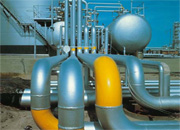BP also announced that it has agreed to sell its 50% interest in each of BP Malawi and BP Tanzania to Puma Energy, subject to the pre-emption rights of its co-shareholders (Press Corporation Limited in Malawi and the Government of Tanzania in Tanzania).
The decision to divest these businesses, which was first announced by BP in March 2010, followed a strategic review of BP's southern African refining and marketing businesses. The sales do not include BP's refining and marketing businesses in Mozambique or South Africa.
Puma Energy, which is already involved in a number of strategic partnerships in the sub-Saharan downstream sector, has confirmed that Angola's state-owned petroleum company, Sonangol (Sociedade de Combustíveis de Angola), intends to take a 10% stake in the acquired businesses.
Pierre Eladari, chairman of Puma Energy, said: "We targeted the BP portfolio for the outstanding quality of its staff and assets, its key account customer base and for the strategic fit with our existing businesses in Mozambique, the Democratic Republic of Congo and Angola. As such, I am very pleased to have been able to conclude this deal with BP alongside our partners, Sonangol."
Puma Energy has agreed to pay BP a total of $296 million in cash, subject to certain post-completion price adjustments, for all of BP's interests in BP Namibia (100 per cent share), BP Botswana (100 per cent), BP Zambia (75 per cent), BP Malawi (50 per cent), and BP Tanzania (50 per cent).
The sale in each country is subject to different regulatory approvals as required and it is expected that sale of BP Botswana will complete in 2010 with completion in the other countries to take place in 2011.
"With the experience and existing businesses of their owners in the region and elsewhere , we believe that Puma Energy should be able to build on these good assets and grow the businesses further in line with the strong economic outlook for the area and in the best interests of all key stakeholders," said Sipho Maseko, CEO of BP Southern Africa.
The five businesses in which BP is selling its interests supply commercial fuels, aviation fuel, lubricants, and a total of almost 190 service stations across the five countries. They also own and operate storage depots and, in Namibia, an import terminal and, in total, employ some 402 staff.
12 Февраля 2026 | четверг | 02:54


